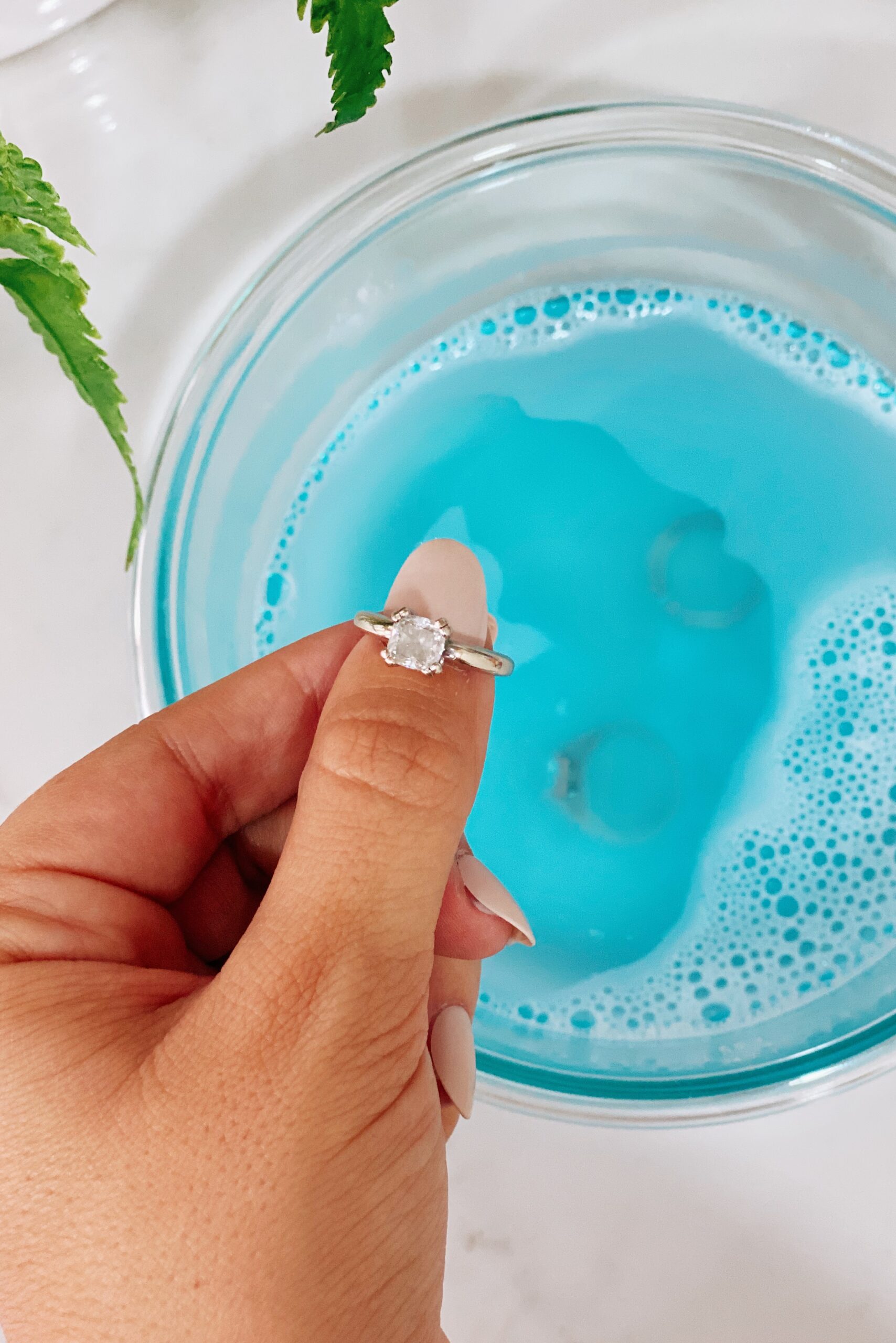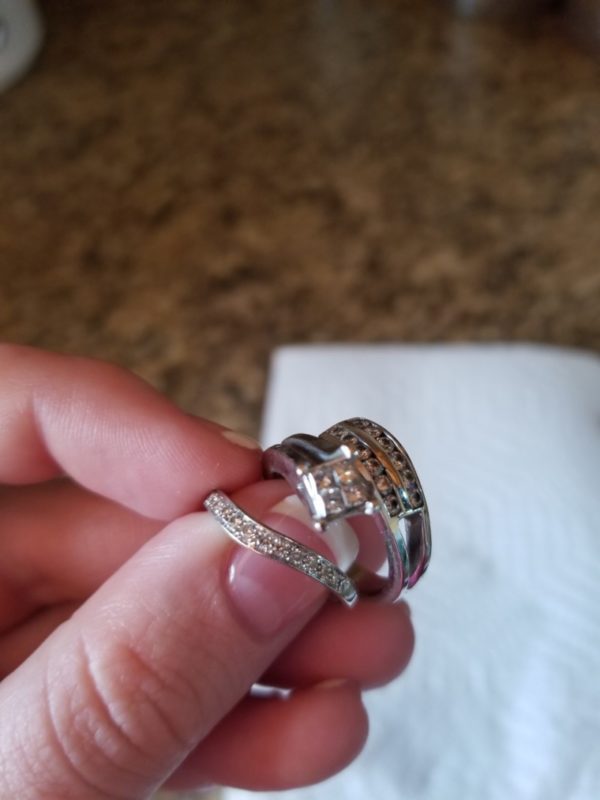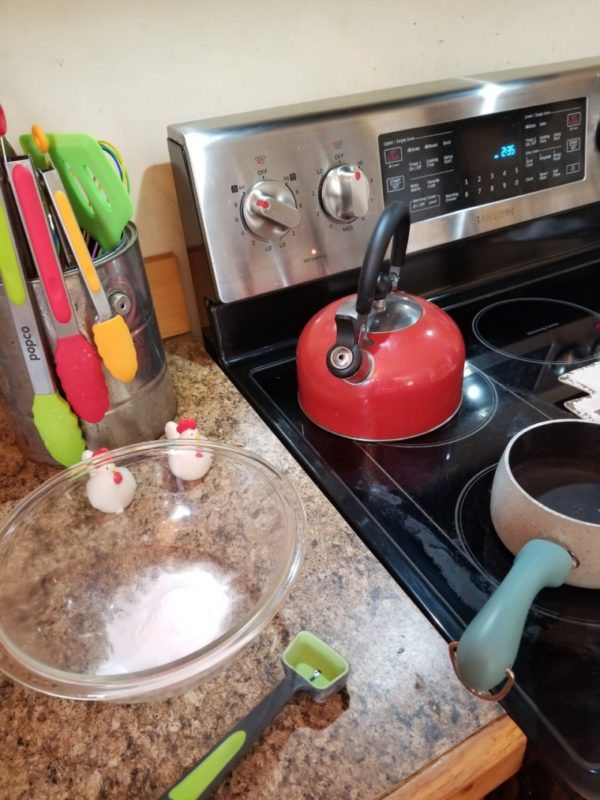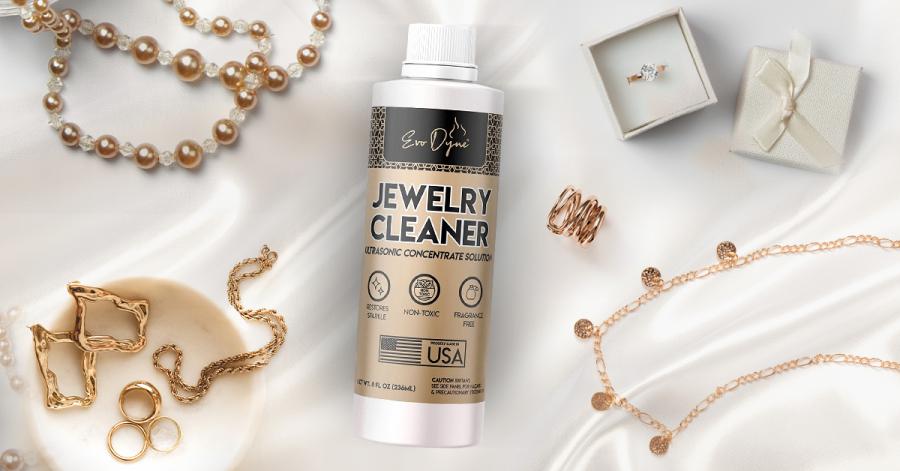Restoring Sparkle: A Comprehensive Guide to Homemade Jewelry Cleaners
Related Articles: Restoring Sparkle: A Comprehensive Guide to Homemade Jewelry Cleaners
Introduction
In this auspicious occasion, we are delighted to delve into the intriguing topic related to Restoring Sparkle: A Comprehensive Guide to Homemade Jewelry Cleaners. Let’s weave interesting information and offer fresh perspectives to the readers.
Table of Content
Restoring Sparkle: A Comprehensive Guide to Homemade Jewelry Cleaners

Jewelry, with its intricate designs and shimmering surfaces, holds a special place in our lives. It adorns us, celebrates milestones, and carries sentimental value. However, the constant wear and tear of daily life can dull its brilliance, leaving it looking lackluster. This is where the art of jewelry cleaning comes into play.
While commercial cleaners are readily available, there is a growing trend towards natural and cost-effective solutions. Crafting homemade jewelry cleaners offers a safe and environmentally conscious approach to restoring your precious pieces to their former glory.
This comprehensive guide delves into the world of homemade jewelry cleaners, exploring their benefits, various recipes, and essential tips for safe and effective cleaning.
Understanding the Importance of Jewelry Cleaning
Jewelry, particularly those made of precious metals like silver, gold, and platinum, are susceptible to tarnishing and discoloration. This occurs due to the interaction of the metal with elements in the environment, such as oxygen, sulfur, and moisture.
Regular cleaning is essential to:
- Preserve the Original Shine: Removing accumulated dirt, grime, and tarnish allows the natural beauty of the metal to shine through.
- Extend the Lifespan: Cleaning helps prevent corrosion and oxidation, which can weaken the metal over time.
- Enhance the Appearance: A clean piece of jewelry looks more vibrant and appealing, enhancing its aesthetic value.
- Maintain Value: Well-maintained jewelry retains its value better than neglected pieces, making it a wise investment.
Homemade Jewelry Cleaners: A Safe and Effective Alternative
Homemade jewelry cleaners offer a compelling alternative to commercially available products, which often contain harsh chemicals that can damage delicate pieces. They are:
- Environmentally Friendly: Utilizing natural ingredients minimizes the environmental impact associated with chemical cleaners.
- Cost-Effective: Many ingredients are readily available in your kitchen, making it a budget-friendly option.
- Versatile: Recipes can be adapted to suit different types of jewelry and cleaning needs.
- Safe for Sensitive Skin: Natural ingredients are generally less likely to cause irritation or allergic reactions.
Popular Homemade Jewelry Cleaner Recipes
Here are several tried-and-tested recipes for homemade jewelry cleaners:
1. Baking Soda and Water Paste:
-
Ingredients:
- 1 tablespoon baking soda
- 1-2 tablespoons water
-
Method:
- Mix the baking soda and water to form a thick paste.
- Apply the paste to the jewelry using a soft-bristled toothbrush.
- Gently scrub the jewelry, focusing on areas with tarnish or dirt.
- Rinse the jewelry thoroughly with water and dry with a soft cloth.
2. Vinegar and Salt Solution:
-
Ingredients:
- 1 cup white vinegar
- 1 tablespoon salt
-
Method:
- Combine the vinegar and salt in a bowl.
- Soak the jewelry in the solution for 30 minutes to an hour.
- Rinse the jewelry thoroughly with water and dry with a soft cloth.
3. Lemon Juice and Baking Soda:
-
Ingredients:
- 1/2 cup lemon juice
- 1 tablespoon baking soda
-
Method:
- Combine the lemon juice and baking soda in a bowl.
- Soak the jewelry in the solution for 15-20 minutes.
- Gently scrub the jewelry with a soft-bristled toothbrush.
- Rinse the jewelry thoroughly with water and dry with a soft cloth.
4. Olive Oil and Baking Soda:
-
Ingredients:
- 1 tablespoon olive oil
- 1 teaspoon baking soda
-
Method:
- Mix the olive oil and baking soda to form a paste.
- Apply the paste to the jewelry using a soft cloth.
- Gently rub the paste over the jewelry, focusing on areas with tarnish or dirt.
- Rinse the jewelry thoroughly with water and dry with a soft cloth.
5. Toothpaste and Water:
-
Ingredients:
- A small amount of non-gel toothpaste
- A few drops of water
-
Method:
- Mix the toothpaste and water to form a paste.
- Apply the paste to the jewelry using a soft-bristled toothbrush.
- Gently scrub the jewelry, focusing on areas with tarnish or dirt.
- Rinse the jewelry thoroughly with water and dry with a soft cloth.
Important Considerations for Effective Cleaning
While homemade jewelry cleaners offer a safe and effective solution, it is crucial to consider the following:
- Jewelry Material: Different metals require different cleaning methods. For instance, silver reacts differently to cleaning solutions than gold.
- Gemstones: Some gemstones, like opals and pearls, are delicate and require special care. Avoid using harsh cleaners or abrasive materials on these stones.
- Setting: Pay attention to the setting of the jewelry. If the stones are loose or the setting is delicate, handle the piece with extra care during cleaning.
- Severity of Tarnish: For heavily tarnished pieces, multiple cleaning sessions may be required.
- Testing: Before applying any cleaner to the entire piece, test it on a small, inconspicuous area to ensure it does not cause any damage.
Tips for Safe and Effective Jewelry Cleaning
- Avoid Harsh Chemicals: Avoid using harsh chemicals like bleach, ammonia, or acetone, as they can damage the metal and gemstones.
- Use Soft Materials: Use soft-bristled toothbrushes, microfiber cloths, or cotton swabs to clean jewelry. Avoid abrasive materials like steel wool or scouring pads.
- Rinse Thoroughly: Ensure all traces of cleaning solution are removed by rinsing the jewelry thoroughly with water.
- Dry Immediately: Dry the jewelry with a soft cloth to prevent water spots.
- Store Properly: Store cleaned jewelry in a dry, airtight container to prevent tarnishing.
Frequently Asked Questions (FAQs)
1. Can I use homemade jewelry cleaners on all types of jewelry?
Not all homemade cleaners are suitable for every type of jewelry. For instance, silver jewelry may benefit from a baking soda and water paste, while gold jewelry might be better suited to a lemon juice and baking soda solution. Always research the appropriate cleaning method for your specific jewelry material.
2. How often should I clean my jewelry?
The frequency of cleaning depends on how often you wear the jewelry and the environment it is exposed to. As a general rule, cleaning your jewelry every few months is recommended.
3. Can I use a jewelry cleaner on gemstones?
Some gemstones, like diamonds, can be cleaned with homemade cleaners. However, delicate gemstones like opals and pearls require specialized cleaning methods.
4. What if my jewelry is heavily tarnished?
For heavily tarnished jewelry, you may need to repeat the cleaning process several times. Consider using a professional jewelry cleaning service for more stubborn cases.
5. Can I use a homemade jewelry cleaner on vintage jewelry?
Vintage jewelry may require special care. Research the appropriate cleaning methods for your specific piece before using any homemade solutions.
Conclusion
Restoring the sparkle to your cherished jewelry is a rewarding endeavor. Homemade jewelry cleaners offer a safe, environmentally friendly, and cost-effective alternative to commercial products. By understanding the different cleaning methods and following the tips outlined in this guide, you can effectively maintain the beauty and value of your jewelry for years to come. Remember to always prioritize safety and handle your jewelry with care, ensuring its longevity and continued brilliance.








Closure
Thus, we hope this article has provided valuable insights into Restoring Sparkle: A Comprehensive Guide to Homemade Jewelry Cleaners. We appreciate your attention to our article. See you in our next article!